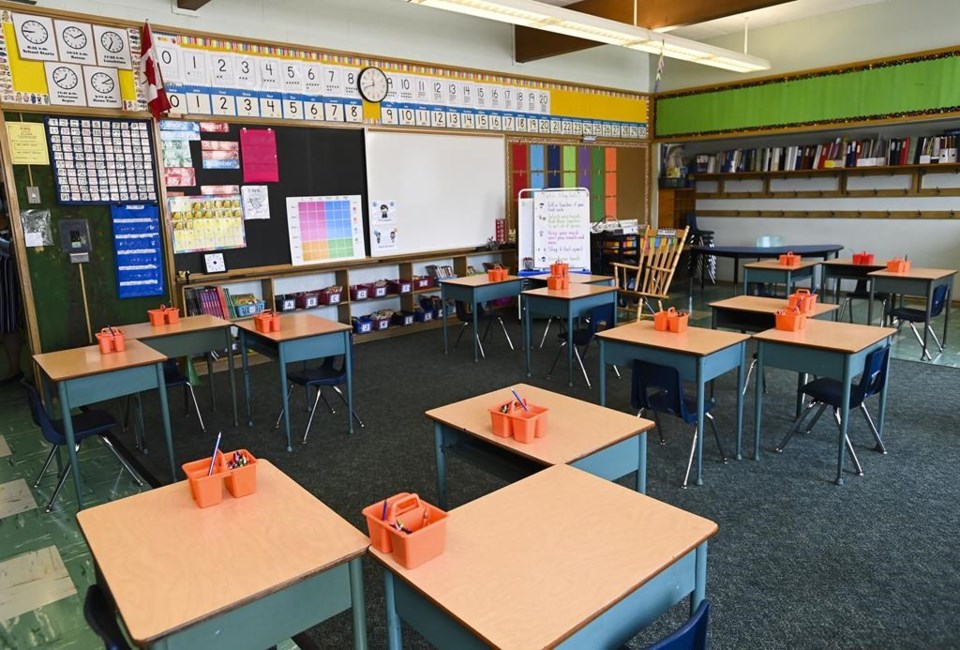TORONTO — A union representing 55,000 Ontario education workers has indicated that a strike planned for Friday will continue indefinitely, potentiallyclosing many schools across the province, but the government is refusing to negotiate further unless the job action is cancelled.
The Canadian Union of Public Employees gave notice over the weekend that the workers – such as early childhood educators, educational assistants and custodians – would walk off the job Friday, despite looming legislation that would make striking illegal.
Previously, the union hadn't said if it planned a one-day job action or a more prolonged strike, but Laura Walton, president of CUPE's Ontario School Board Council of Unions, said Wednesday that workers plan to be on strike beyond Friday.
"Without anything changing, we are on strike until further notice starting Friday, unless a deal is reached," she said.
CUPE gave the government a counter offer late Tuesday, but Education Minister Stephen Lecce said Wednesday that he won't negotiate those proposals unless the union cancels its strike.
"Take the threat off the table and let’s talk," he said in a news conference.
"We’ve been very clear. We stand ready to negotiate with any willing partner, but they’ve got to take the strike off the table on Friday. We will not accept a strike this Friday or any day."
The Ontario government has introduced a bill – expected to pass Thursday – to impose a contract on the education workers and ban them from striking. Lecce said because of CUPE's strike threat, the government "has no choice" but to proceed with the bill.
The legislation sets out fines for violating a prohibition on strikes for the life of the agreement of up to $4,000 per employee per day, while there are fines of up to $500,000 for the union. Walton has said the union would foot the bill for penalties levied against workers, and suggested Wednesday that CUPE is looking for outside financial help.
"We are part of a very large union and an even larger labour movement," she said in response to a question about the fines.
"Workers are determined, regardless of the union that they belong to, to ensure that this government is not interfering with worker rights."
CUPE has not provided details of its new proposal, but Walton said it contained many concessions.
"We have made significant moves in all areas in hopes of reaching a deal while ensuring that workers have good wages, and that students and families have better services," she said.
The government originally offered raises of two per cent a year for workers making less than $40,000 and 1.25 per cent for all others, but Lecce said the new, imposed four-year deal would give 2.5 per cent annual raises to workers making less than $43,000 and 1.5 per cent raises for all others.
CUPE has said that framing is not accurate because the raises actually depend on hourly wages and pay scales, so the majority of workers who earn less than $43,000 in a year wouldn't get 2.5 per cent.
CUPE has said its workers, which make on average $39,000 a year, are generally the lowest paid in schools and had been seeking annual salary increases of 11.7 per cent.
The union's original proposal also included overtime at two times the regular pay rate, 30 minutes of paid prep time per day for educational assistants and ECEs, an increase in benefits and professional development for all workers.
Several boards, including the Toronto District School Board, have said they will have to close schools on Friday because they can't operate safely without the CUPE-represented staff.
Several other unions, including the teachers' unions currently in bargaining with the government, have expressed solidarity with CUPE. The most notable example is Labourers' International Union of North America — LiUNA — which endorsed Premier Doug Ford's Progressive Conservatives in the spring election.
The president of the Ontario Secondary School Teachers' Federation said Wednesday she is concerned about her union's negotiations with the government in light of the CUPE legislation.
"It's so heavy handed, so draconian, so unnecessary, so unconstitutional, all of the above," Karen Littlewood said. "It's hard to sit face to face with another group who's bringing in that type of action."
Prime Minister Justin Trudeau, as well as the federal justice and labour ministers, have criticized the Ontario government for pre-emptively including the notwithstanding clause in the legislation, saying it shouldn't be used to suspend workers' rights.
The clause allows the legislature to override portions of the Canadian Charter of Rights and Freedoms for a five-year term.
Ontario's opposition parties have roundly condemned the legislation and more than a dozen New Democrat members got themselves kicked out of question period in protest on Wednesday, either by using unparliamentary language or refusing to come to order. The move was not expected to have an effect on the debate of the bill.
- With files from Liam Casey
This report by The Canadian Press was first published Nov. 2, 2022.
Allison Jones, The Canadian Press



